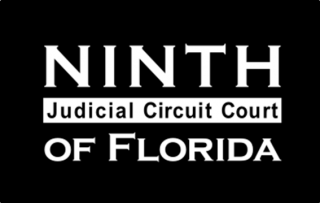 The Ninth Judicial Circuit Court of Florida recently granted summary judgment to an insured against a title insurer after the title insurer failed to except a title defect from coverage under a policy.
The Ninth Judicial Circuit Court of Florida recently granted summary judgment to an insured against a title insurer after the title insurer failed to except a title defect from coverage under a policy.
In so ruling, the Court held that breaching a policy of title insurance exposes the title company to extra-contractual liability beyond the policy’s limits.
A copy of the opinion is available here: Link to Opinion.
In this case, the insured had purchased 253 acres of property in Florida. The title insurer issued a policy that failed to note a recorded mobile home plat that appeared to cover approximately one-third of the property at issue. After receiving notice of the claim, the title insurer accepted coverage—without sending a reservation of rights letter—and hired an attorney to resolve the defect.
At this point, the title insurer had three options. It could (1) attempt to cure the defect through a non-judicial process (such as petitioning the county), (2) file a suit to cure the defect, or (3) pay the insured the policy limits—more than $3.5 million.
Rather than institute litigation (or pay the substantial policy limits), the title insurer had the attorney petition the county in which the property was located to vacate the plat. It took approximately two-and-a-half years for the attorney to get the county to do so. And the county agreed to vacate the plat only after the insured agreed to grant an easement to the county across his property.
Then, the insured sued the title company for breach of contract and for a declaratory judgment, claiming he suffered damages comprising (1) loss of value of the land of $2 million and (2) other damages, like carrying costs. The Court made three main rulings.
First, the Court quickly concluded the insured was entitled to payment for the value of the easement he gave to the county, in an amount to be determined at trial.
Second, the Court rejected the title insurer’s attempt to argue that Florida’s Marketable Record Title Act (MRTA) had extinguished the mobile-home plat, and therefore there was not a title defect. Although the operation of MRTA was not germane to the opinion, the Court noted that the law deals with eliminating older claims to property if the claimant has not taken certain action to protect his or her interest.
Regardless of the merits of the MRTA argument, the Court found that the title insurer was estopped from raising it. The title insurer had accepted coverage, without a reservation of rights, and had chosen to use a non-judicial process to attempt to cure the plat defect. The Court found that the insured had relied on the title insurer’s choice of method for resolving the defect, and the title insurer could not now claim a defense to coverage that it failed to raise initially.
Lastly, the Court made a significant ruling on what damages the insurer could seek at trial. The Court began by noting that the policy stated it would pay for “actual loss” or “damage,” without defining those terms. Then, the Court looked to the oft-cited law that provisions in insurance policies are construed against the insurer if they are at all ambiguous.
With this in mind, the Court noted that Florida law values a pre-suit title claim at (1) the diminution in market value of the property caused by the defect; or (2) the cost of removing the defect.
But the Court did not stop there. Because this was not just a pre-suit title claim—this was a suit for a breach of the title policy, the Court analyzed what damages an individual can recover for a breach of a policy, as opposed to how much a title insurer would need to pay to satisfy a claim pre-suit.
Turning to the alleged breach, the Court noted that the title insurer had a duty to resolve the defect in a diligent manner. The jury needed to decide whether that duty had been breached. Next, the Court laid out the rubric for the damages that would be recoverable if the jury found the title insurer had breached the policy.
In doing so, the Court followed a Texas federal-court case that applied Florida law and found that, when a title insurer breaches its duty to resolve a defect diligently, it is responsible for “all measurable compensatory damages resulting from that breach.”
Accordingly, with a pre-suit title claim, the maximum amount of exposure for a title insurer is, of course, the agreed-upon policy limit. However, with a breach-of-policy suit, a title insurer can be liable for amounts in excess of the policy limits.
Along those lines, damages can be quite limited under a pre-suit title claim. The title insurer would only have to pay the diminution in value of the property or the amount necessary to cure it. In stark contrast, a policy holder who successfully proves a breach of the policy is entitled to all compensatory damages flowing from the breach.


